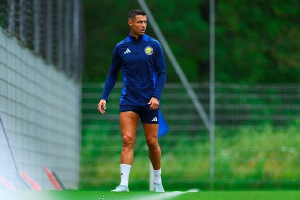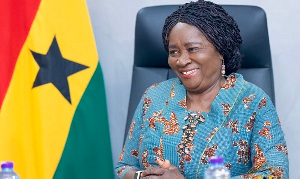THE CAUSES, DISADVANTAGES AND SOLUTIONS
The backbone of the development of any country's economy during this technological age is ELECTRICITY/ENERGY and so a reason why any country which is willing or is eager to develop has to not just have it but do so in abundance.
In Ghana, a majority of our source of electricity comes from hydro-electric dams and thermal plants, with a large number of them being managed by Volta River Authority (VRA) and Ghana Grid Company (GRIDCO) which are both government owned and a few of these power plants managed by some Independent Power Producers (IPP) such as the Shenzhen Energy Group. VRA is responsible for the generation of electricity while GRIDCO is only responsible for its transmission.
The electricity generated by these bodies – public or privately owned – are then sold by the Northern Electricity Distribution Company (NEDCO) and Electricity Company of Ghana (ECG) to Ghanaians.
Note: NEDCO and ECG are only sellers of Electricity but not manufacturers or transmitters of Electricity.
Currently, Ghana is undergoing an ELECTRICITY CRISIS, popularly known as "DUMSOR", which is having a monumentally bad effect on people, industries and the country's economy in general. The sad part is, the NDC-led government seems to be clueless about its causes and solutions.
We have done some research and have come out with results which we believe are the CAUSES, DISADVANTAGES and SOLUTIONS to the "DUMSOR" crisis in GHANA.
CAUSES
1. HYDRO-ELECTRIC DAMS
There are currently three hydro-electric dams in Ghana and they are the:
A. Akosombo Dam B. Bui Dam C. Kpong dam
2. These dams aren't functioning properly because of;
i. A very low water level
The dams presently have low water levels. A minor reason for this is the insufficient amount of rainfall from the year before, and the major reason being a fall in the flow of water from upstream following the construction of dams in Burkina Faso, on an important water source to the Volta Lake.
It is ludicrous to have a government official, Solomon Nkansah, attribute the Akosombo Dam's below-capacity energy generation to the Bui Dam, by claiming that the latter is blocking the flow of water to the Akosombo Dam. A simple question we'd like to ask to expose his lie, which no doubt is borne of ignorance, is: How come, the Bui dam isn't also giving us power at its full capacity? Especially, considering the reason given by other government officials that, the Bui dam is also experiencing a low water level. Is any dam in Ghana affecting its water level also?"
The truth of the matter is, the Bui and Akosombo dams were built at different parts of the Volta River, so that neither can impede the flow of water to the other.
ii. Mechanical faults/problems on some of the turbines and machines being used
POWER PLANTS
Power plants work just like generators, there are so many types of power plants, and some are;
Thermal, Solar, wind, coal, power barges (Power ship) and others
In Ghana, we have only one huge Solar Plant in Navrongo in the Upper East Region, one Power badge named the Osagyefo Badge and a series of thermal plants scattered across mostly the western and Greater Accra regions; the being Asogli, Kpone, Aboadze thermal plants and others.
Unluckily, these plants are not giving us all the power they are supposed to give us because they aren't functioning well and some of the reasons are;
i. Unavailability of Gas/Light Crude oil/diesel to power these plants
ii. Most of them are spoilt and thus not working at all or properly because of some mechanical problems, of which lots of critics believe are as the results of lack of regular maintenance of these plants.
FINANCE
Electricity is produced by VRA and the various IPP through the various dams and plants which have been stated above and then transmitted by GRIDCO.
The produced electricity is then sold by ECG and NEDCO. NEDCO caters mostly for the three northern regions, a major part of the Brong Ahafo region and a few towns in the northern part of the Ashanti region.
ECG which is the major seller of the electricity takes care of the sale to the rest of the regions in Ghana.
Note: it is only the Volta Aluminum Company (VALCO) and some few others that VRA directly sells electricity to.
One of the reasons for this "DUMSOR" crisis is that VRA, GRIDCO and IPP cannot access the needed capital to maintain their machines or bring in new ones to increase the electricity.
i. ECG is unable to collect all the money they should after selling the power to consumers.
Figures show that, the portion of sales that ECG is unable to collect from consumers is very huge and thus brings huge losses to the producers. Consequently the power producers become "BROKE" and cannot set aside portions of their earnings to recapitalize their operations or expend – to maintain or bringing in/build new plants or dams.
ECG mostly attributes these losses to its inability to collect monies owed by government agencies and institutions such as Parliament, Hospitals, majority of tertiary institutions and others, with VALCO being a major reason for VRA being "BROKE" – it is unwillingness to pay its debts, with government also not paying its share of VALCO's electricity bill to VRA.
ii. The NDC/Mahama Government's unwillingness to pay the electricity debts of various government institutions, especially, that of VALCO to ECG, NEDCO and VRA.
iii. The unwillingness of the NDC/Mahama Government to allocate funds to help maintain, repair and build more plants and dams in Ghana to support the existing ones
iv. Even though, the electricity sector would have been very good for investment because of the current demand of electricity in Ghana, foreign and local investors (IPP) are unwilling to invest in this sector (electricity) because of their lack of confidence in ECG, in that, they are unable to retrieve all their monies from consumers.
Also another reason for these investors' fear and unwillingness to invest in the country is as a result of the country's current high tariffs rates and taxes, unstable foreign exchange and the uncertainty of conditions of the country with regards to the economic indicators which makes doing business unfavorable to any investor.
INCREMENT IN NUMBER OF CONSUMERS
This reason though minor still needs to be touched on.
The thing is, the NDC/Mahama government has increased the number of consumers of electricity in Ghana through activities such as his rural electrification projects, against the diminishing quantity of electricity the country is already experiencing. The government, while expanding access has, regrettably, to paid enough attention to improving quality and augmenting production.
DISADVANTAGES OF "DUMSOR"
A. Inflation: This "DUMSOR" crisis brings about a rise in the cost of doing business which, consequently, translates into a high cost of living and this happens because, the producers will have to push down all the additional costs they incur through buying generators and petrol/diesel, to consumers.
B. Unemployment: When "DUMSOR" becomes very serious and continuous, it affects/prevents the growth of existing businesses and the establishment of new ones.
It actually collapses most existing jobs or causes a reduction in the workforce and production levels of such business. E.g.: the collapse of most small and large scale businesses such as cold stores, hairdressing saloons, barbering shops and others; the sack of most workers from many industries such as the mining companies (AngloGold, Newmont and others) and others.
This crisis mostly affects the private businesses which are mostly the major drivers of any country's economy.
C. Depreciation of the Cedi: The "DUMSOR" can bring about a fall in the cedi against its major trading currencies because when there is "DUMSOR", the numbers of functional factories/industries/companies reduce in a country. A reduction in local production aides imports which in the long run aides in the depreciation of its currency.
D. Increase in Taxes and Tariffs: When the "DUMSOR" crisis is very serious, it brings about high cost of living, collapse of businesses, huge unemployment and others. This also brings about a reduction in those caught in the tax net (the reduction of people and businesses who are supposed to be taxed) and as a result, a reduction in the internally generated revenue from taxes.
E. Air Pollution: Due to the "DUMSOR", people mostly turn to the use of power generators to do their business or use in their homes.
The smoke that comes out of generators is harmful and therefore bad for the health of the people who use or are around that area.
SOLUTION
Short and Medium Term Solution
A. Government should buy lots of gas, light crude oil and diesel to power the many mini thermal plants scattered across the country, not in use and not spoilt, to give the country additional electricity.
B. Government should repair the parts of the dams and thermal plants having mechanical problems so that they can function fully to give us all electricity they can fully supply.
C. Government can buy electricity from other sister countries to supply the country with electricity always as government did during the AFCON 2015 so that Ghanaians could watch all the Ghanaian matches.
D. Government can contact owners of some already built power barges to supply us with electricity without necessarily building new ones to supply us with electricity.
Note: Building a power badge can take several months and so, it is not a good short term solution to build a new one.
E. Government should encourage all government institutions such tertiary schools, senior high schools, hospitals, Parliament house, companies and others to buy their own generators to power their institutions to help reduce the pressure on the national supply until this "DUMSOR" is finally solved.
Also government should advice both private institutions/companies and homes who can afford to get generators (petrol/diesel)/solar plants (mini/large) for themselves, to help supplement the national supply until this problem is finally solved.
F. Government should reduce petrol and diesel drastically so that, the government institutions, private institutions/companies and homes who will want to help reduce the pressure on the national supply by buying themselves generators wont incur so much cost through the buying of diesel/petrol for their generators.
LONG TERM SOLUTION
A. Government should tap into other forms of producing power such as solar, wind, biogas (feces), coal (very poisonous though) and stop depending on the hydro and thermal only.
Note; we have in abundance wind, solar, biogas potential and coal in Ghana.
Disadvantages of Coal
Coal, even though, is one of the cheapest energy sources, most experts/critics still don't advice the use of, to generate power in Ghana because of its bad effect on the health of humans. They argue coal produces harmful gases such as nitrogen oxide and mercury which are very dangerous to the health of humans, especially, the entire respiratory system. They go on to argue that, it is the cause of about one million deaths annually around the world.
B. Government should build mini hydro-electric dams on most of our rivers across Ghana.
C. Large Electricity Consumers: The very large electricity consumers in Ghana are the mining companies and VALCO, with VALCO being the larger of the two.
i. Government should encourage mining companies of which majority are private or partly private to build their own power plants to supply themselves and the towns they mine in with power, so as not to halt their work during power crisis like this one and also through that, help reduce the pressure on the nation's electricity supply.
Note: some mining companies namely AngloGold, Newmont and others built a power plant by name Mines Reserve Power Plant to power their machines in 2007 when Ghana experienced a similar "DUMSOR" under Kufour but they later handed it over to VRA in 2008 to use after the "DUMSOR" was over.
ii. Government should build a separate power plant for VALCO alone to take care of its power needs.
D. Since ECG seems to be the major problem now because of its inability to reduce its huge losses in collecting money from the sales of the electricity to the consumers, it will be advisable for the government to sack and replace all the incompetent workers there or sell entirely or partly the ECG company to private interests who can manage it well.
E. Finally, since the NPP/Kufour government was able to solve a similar "DUMSOR" crisis in their term in 2007, the NDC/Mahama government should kill their ego and visit the NPP to help them with advice to help solve this similar "DUMSOR" crisis under them now.
CONCLUSION
In summary, the problem and solution of/to this "DUMSOR" crisis is just the "LACK OF MONEY" or the "LACK OF WILL" of the NDC/Mahama government to invest in the electricity sector as the NPP/Kufour government did in 2007 and so was able to solve a similar crisis under its term in office.
If only the government will be willing to invest some of the money they have borrowed, in the ELECTRICITY sector by buying light crude oil/diesel/gas for the power plants, maintenance of old power plants, building of new dams and plants and others as the NPP did to solve it in 2007 during their term in office, this "DUMSOR" will be a thing of the past.
Thank you
MAY GOD BE PRAISED ALWAYS!
NANA KWADWO AKWAA... +233-246-913-905
NANA KWAME KOBRI KWAKYE .................... +233-244-087-207
DJ SOURCE KLINSMANN.. +447-534-455-242
DR. ABRAHAM SAGOE....... +233-501-391-483
Opinions of Friday, 6 March 2015
Columnist: Kobri Okwantuni














